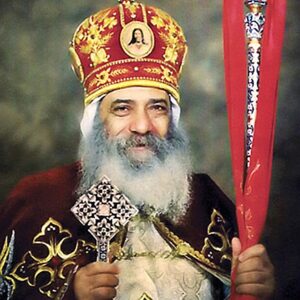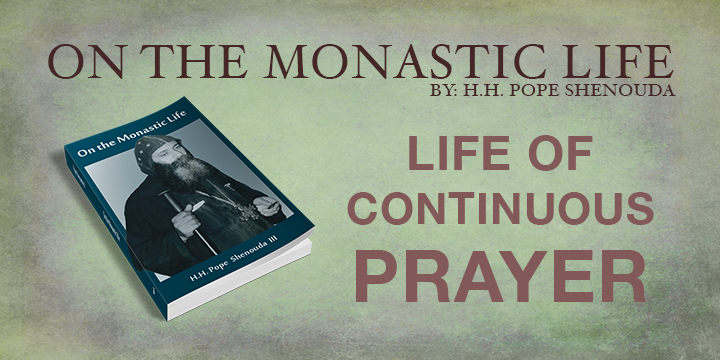Monastic life above everything is a life of continuous prayer. A layman can do everything that a monk does, except continuous prayer. This is the major difference between a monk and a layman because continuous prayer involves no distractions and laymen do not have this luxury. The monk's entire life is dedicated to God. Laymen …
Monastic life above everything is a life of continuous prayer. A layman can do everything that a monk does, except continuous prayer. This is the major difference between a monk and a layman because continuous prayer involves no distractions and laymen do not have this luxury. The monk’s entire life is dedicated to God. Laymen are able to perform merciful deeds, and educate and serve others, but one thing they cannot achieve is continuous prayer.
Monks are called ‘earthly angels’ for two reasons:
1- Striving for purity of the heart
2- Striving to pray continuously
Those who join a monastery become monks mainly for the life of continuous prayer. This is why monks live in solitude. Of course solitude is not the aim in itself, but it is a means to reach continuous prayer. St. Arsanius used to avoid even meeting saints. When St. Macarius the Alexandrian asked him, “Why are you avoiding us, my father?” He replied, “I cannot talk to people and God at the same time.” Those who want to reach total consecration for prayer with God, let them live in solitude and quietness.
Also silence in itself was not an intended virtue but a means to reach continuous prayer. When people practice silence, it is not to reach the virtue of silence, but to keep the mind busy with God. A spiritual elder once said ‘he who talks much is empty from inside’, meaning that he is empty from continuous prayer.
The fathers lived in the wilderness and deserts for the sake of mastering continuous prayer. They then entered into the inner wilderness to give all their time to God. To achieve continuous prayer, they kept protecting their senses. We know that this is a virtue because the senses bind the thoughts. We think about what we see and hear, and act on them. The senses are the gates of the mind, and to be at peace concerning our thoughts we have to control our senses. The question is ‘why do we have to control our thoughts to live at peace’? It is in order to keep the mind thinking about God. Thus for the sake of continuous prayer they preserved their senses.
Most of the monk’s readings are to consecrate the heart for continuous prayer. Therefore we aim to choose the readings which help in prayer, or which give us fiery prayer. Not everything is beneficial to read for the monk who wants to achieve a continuous connection with God. He has to read until his feelings yearn for God, then he will start praying.
Continuous prayer is an expression of the love of a person and the relationship to God. When we love someone we think about them much. When you love God you will think of Him and be busy with Him. The person who does not pray much does not love God much. The more love we have for God the more we will pray. Therefore, if we say that solitude and silence is a means to God, which helps prayer, then we say that prayers are an expression of our love to God.
Join Us: Sign Up Today!
Tags:












